| 9th September 2019 04:32 PM | |
| sumit | Re: CBSE 12th class Chemistry Previous year solved Question Paper As you are asking for CBSE 12th class Chemistry Previous year solved Question Paper , soon your demand I am providing same here CBSE 12th class Chemistry Previous year Question Paper 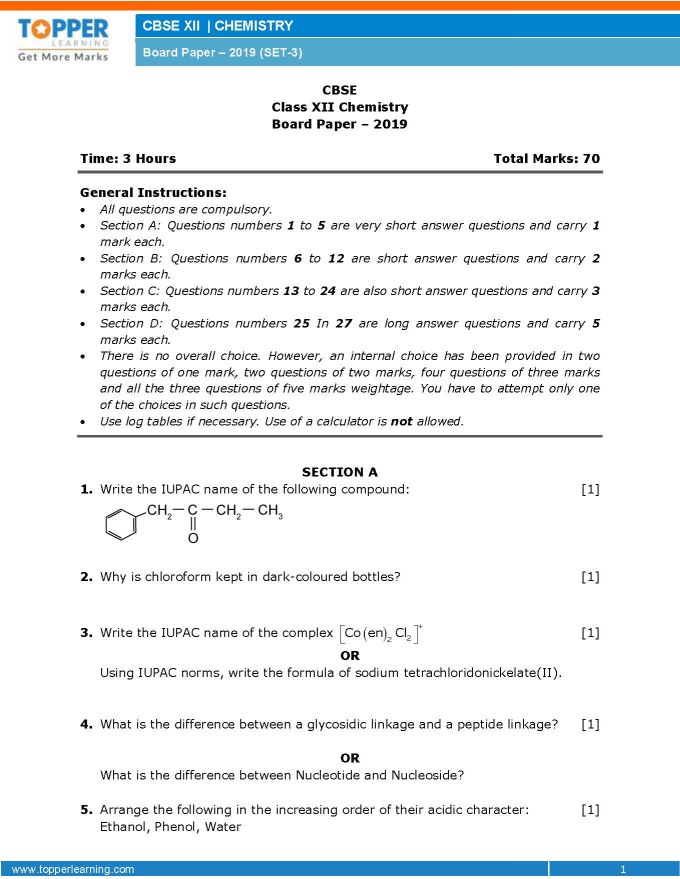   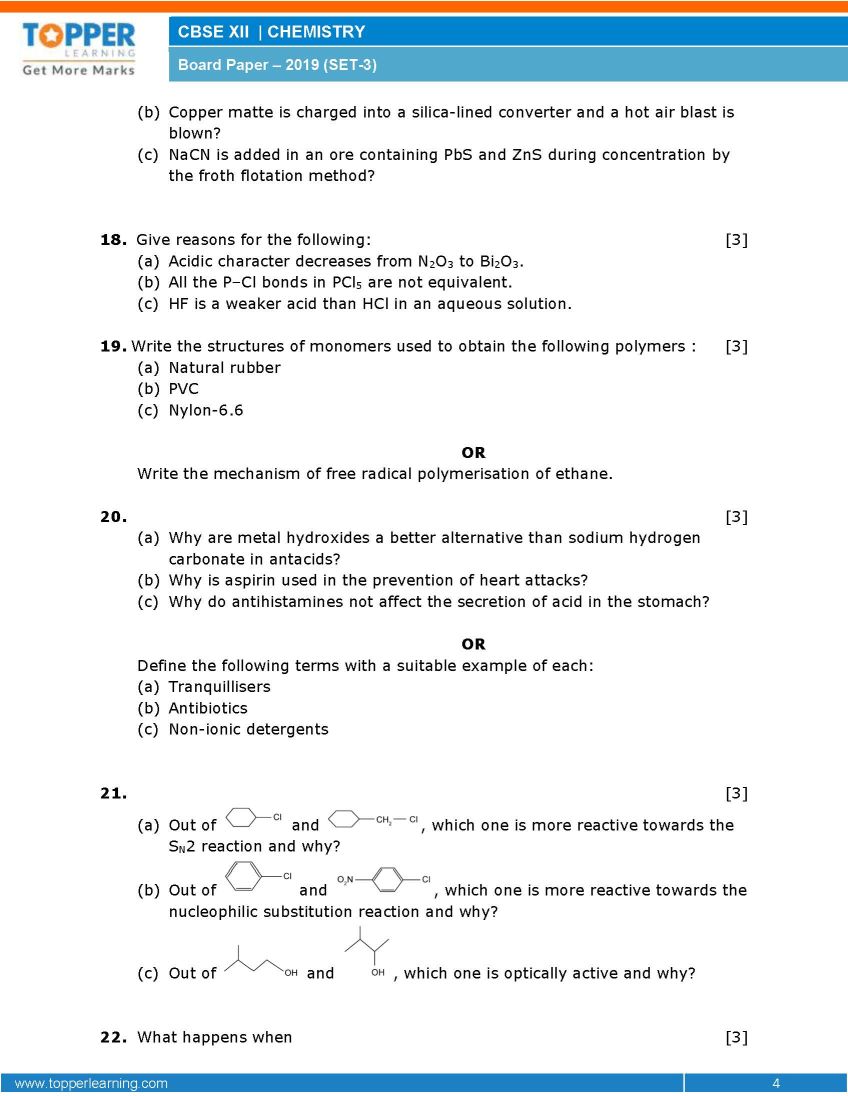  CBSE 12th class Chemistry syllabus Unit I: Solutions (10 Periods) Types of solutions, expression of concentration of solutions of solids in liquids, solubility of gases in liquids, solid solutions, colligative properties - relative lowering of vapour pressure, Raoult's law, elevation of boiling point, depression of freezing point, osmotic pressure, determination of molecular masses using colligative properties, abnormal molecular mass, Van't Hoff factor. Unit II: Electrochemistry (12 Periods) Redox reactions, conductance in electrolytic solutions, specific and molar conductivity, variations of conductivity with concentration, Kohlrausch's Law, electrolysis and law of electrolysis (elementary idea), dry cell-electrolytic cells and Galvanic cells, lead accumulator, EMF of a cell, standard electrode potential, Nernst equation and its application to chemical cells, Relation between Gibbs energy change and EMF of a cell, fuel cells, corrosion. Unit III: Chemical Kinetics (10 Periods) Rate of a reaction (Average and instantaneous), factors affecting rate of reaction: concentration, temperature, catalyst; order and molecularity of a reaction, rate law and specific rate constant, integrated rate equations and half-life (only for zero and first order reactions), concept of collision theory (elementary idea, no mathematical treatment). Activation energy, Arrhenius equation. Unit IV: Surface Chemistry (08 Periods) Adsorption - physisorption and chemisorption, factors affecting adsorption of gases on solids, catalysis, homogenous and heterogenous activity and selectivity; enzyme catalysis colloidal state distinction between true solutions, colloids and suspension; lyophilic, lyophobic multi-molecular and macromolecular colloids; properties of colloids; Tyndall effect, Brownian movement, electrophoresis, coagulation, emulsion - types of emulsions. Unit V: General Principles and Processes of Isolation of Elements (08 Periods) Principles and methods of extraction - concentration, oxidation, reduction - electrolytic method and refining; occurrence and principles of extraction of aluminium, copper, zinc and iron Unit VI: p -Block Elements (14 Periods) Group 16 Elements: General introduction, electronic configuration, oxidation states, occurrence, trends in physical and chemical properties, dioxygen: Preparation, Properties and uses, classification of Oxides, Ozone, Sulphur - allotropic forms; compounds of Sulphur: Preparation Properties and uses of Sulphur-dioxide, Sulphuric Acid: industrial process of manufacture, properties and uses; Oxoacids of Sulphur (Structures only). Group 17 Elements: General introduction, electronic configuration, oxidation states, occurrence, trends in physical and chemical properties; compounds of halogens, Preparation, properties and uses of Chlorine and Hydrochloric acid, interhalogen compounds, Oxoacids of halogens (structures only). Group 18 Elements: General introduction, electronic configuration, occurrence, trends in physical and chemical properties, uses. Unit VII: d and ‘f Block Elements (12 Periods) General introduction, electronic configuration, occurrence and characteristics of transition metals, general trends in properties of the first row transition metals - metallic character, ionization enthalpy, oxidation states, ionic radii, colour, catalytic property, magnetic properties, interstitial compounds, alloy formation, preparation and properties of K2Cr2O7 and KMnO4. Lanthanoids - Electronic configuration, oxidation states, chemical reactivity and lanthanoid contraction and its consequences. Actinoids - Electronic configuration, oxidation states and comparison with lanthanoids. Unit VIII: Coordination Compounds (12Periods) Coordination compounds - Introduction, ligands, coordination number, colour, magnetic properties and shapes, IUPAC nomenclature of mononuclear coordination compounds. Bonding, Werner's theory, VBT, and CFT; structure and stereoisomerism, importance of coordination compounds (in qualitative inclusion, extraction of metals and biological system). Unit IX: Haloalkanes and Haloarenes (12 Periods) Haloalkanes: Nomenclature, nature of C-X bond, physical and chemical properties, mechanism of substitution reactions, optical rotation. Haloarenes: Nature of C-X bond, substitution reactions (Directive influence of halogen in monosubstituted compounds only). Uses and environmental effects of - dichloromethane, trichloromethane, tetrachloromethane, iodoform, freons, DDT. Unit X: Alcohols, Phenols and Ethers (12 Periods) Alcohols: Nomenclature, methods of preparation, physical and chemical properties (of primary alcohols only), identification of primary, secondary and tertiary alcohols, mechanism of dehydration, uses with special reference to methanol and ethanol. Phenols: Nomenclature, methods of preparation, physical and chemical properties, acidic nature of phenol, electrophillic substitution reactions, uses of phenols. Ethers: Nomenclature, methods of preparation, physical and chemical properties, uses. Unit XI: Aldehydes, Ketones and Carboxylic Acids (14 Periods) Aldehydes and Ketones: Nomenclature, nature of carbonyl group, methods of preparation, physical and chemical properties, mechanism of nucleophilic addition, reactivity of alpha hydrogen in aldehydes, uses. Carboxylic Acids: Nomenclature, acidic nature, methods of preparation, physical and chemical properties; uses. Unit XII: Organic compounds containing Nitrogen (12 Periods) Amines: Nomenclature, classification, structure, methods of preparation, physical and chemical properties, uses, identification of primary, secondary and tertiary amines. Cyanides and Isocyanides - will be mentioned at relevant places in text. Diazonium salts: Preparation, chemical reactions and importance in synthetic organic chemistry. Unit XIII: Biomolecules (12 Periods) Carbohydrates - Classification (aldoses and ketoses), monosaccahrides (glucose and fructose), D-L configuration oligosaccharides (sucrose, lactose, maltose), polysaccharides (starch, cellulose, glycogen); Importance of carbohydrates. Proteins -Elementary idea of - amino acids, peptide bond, polypeptides, proteins, structure of proteins - primary, secondary, tertiary structure and quaternary structures (qualitative idea only), denaturation of proteins; enzymes. Hormones - Elementary idea excluding structure. Vitamins - Classification and functions. Nucleic Acids: DNA and RNA. Unit XIV: Polymers (06 Periods) Copolymerization, some important polymers: natural and synthetic like polythene, nylon polyesters, bakelite, rubber. Biodegradable and non- biodegradable polymers. Unit XV: Chemistry in Everyday life (06 Periods) Chemicals in medicines - analgesics, tranquilizers antiseptics, disinfectants, antimicrobials, antifertility drugs, antibiotics, antacids, antihistamines. Chemicals in food - preservatives, artificial sweetening agents, elementary idea of antioxidants. Cleansing agents- soaps and detergents, cleansing action. |
| 9th September 2019 04:28 PM | |
| Unregistered | Re: CBSE 12th class Chemistry Previous year solved Question Paper Hi buddy here I am looking for CBSE 12th class Chemistry Previous year solved Question Paper , if you have then would you plz provide me same here or tell me from where I can get it ?? |
| 17th July 2014 09:12 AM | |
| Quick Sam | Re: CBSE 12th class Chemistry Previous year solved Question Paper This is the CBSE 12th class Chemistry Previous year solved Question Paper: Rests of the questions are in the attachment, download it freely from here: CBSE 12th class Chemistry Previous year solved Question Paper 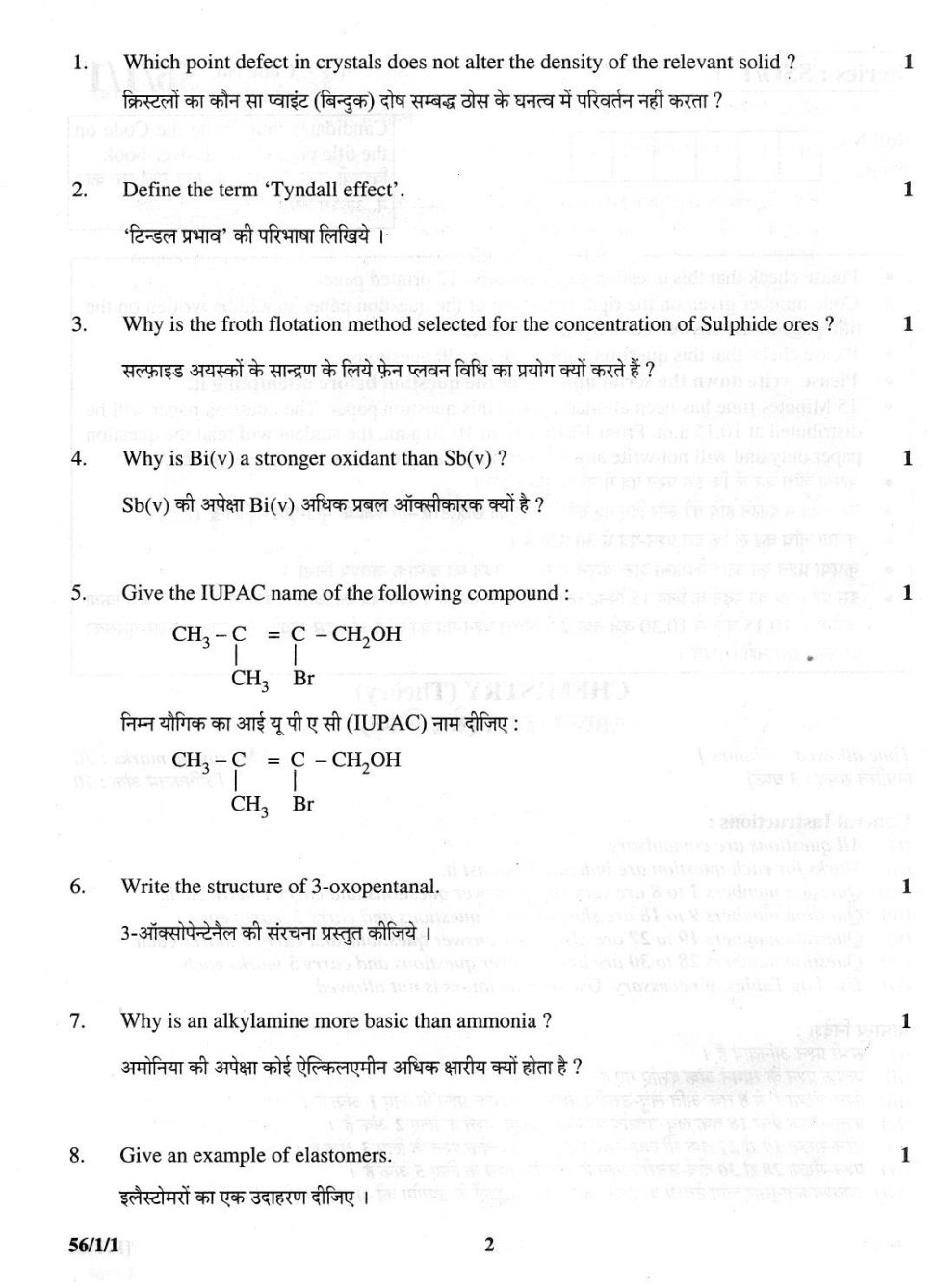 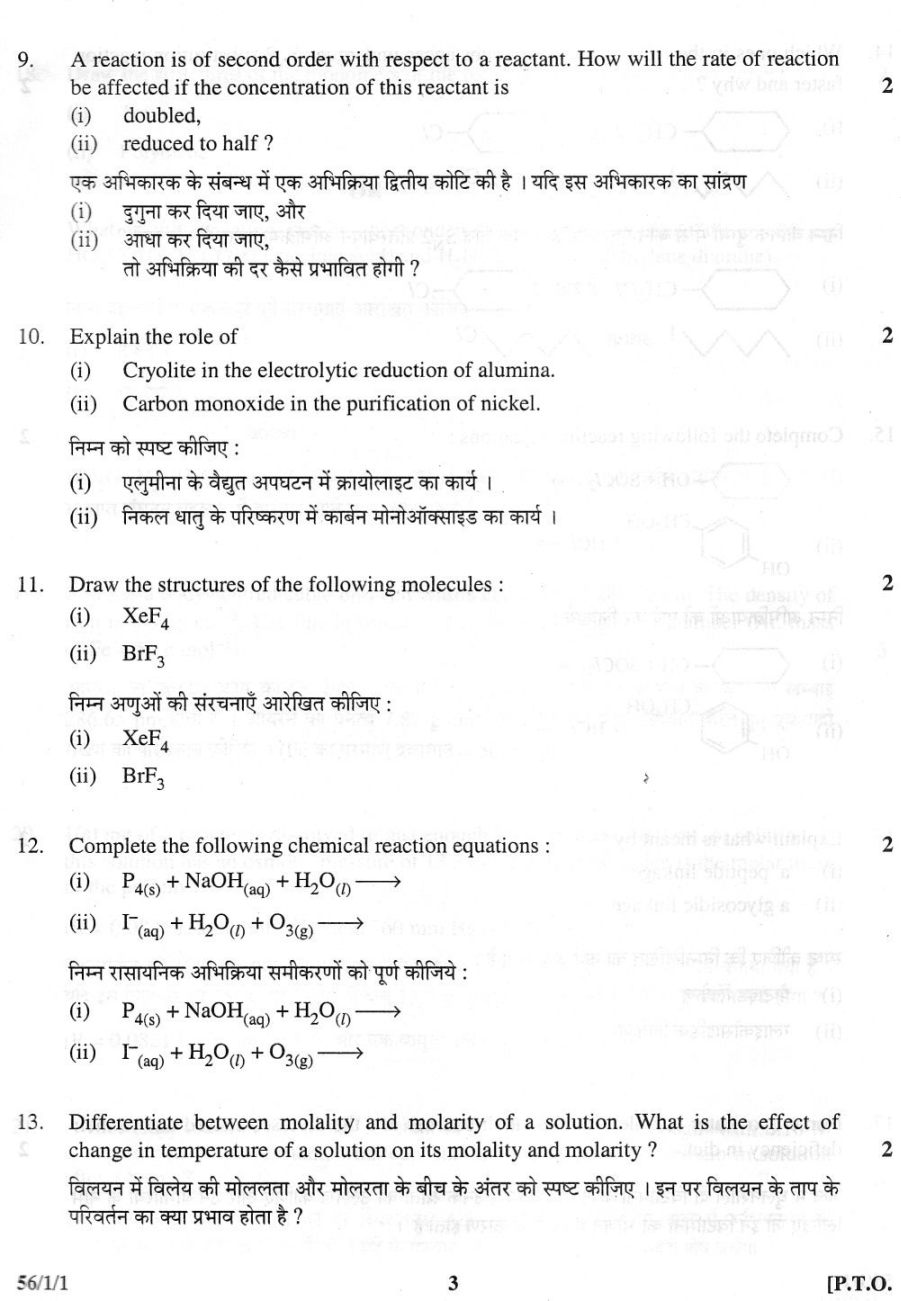     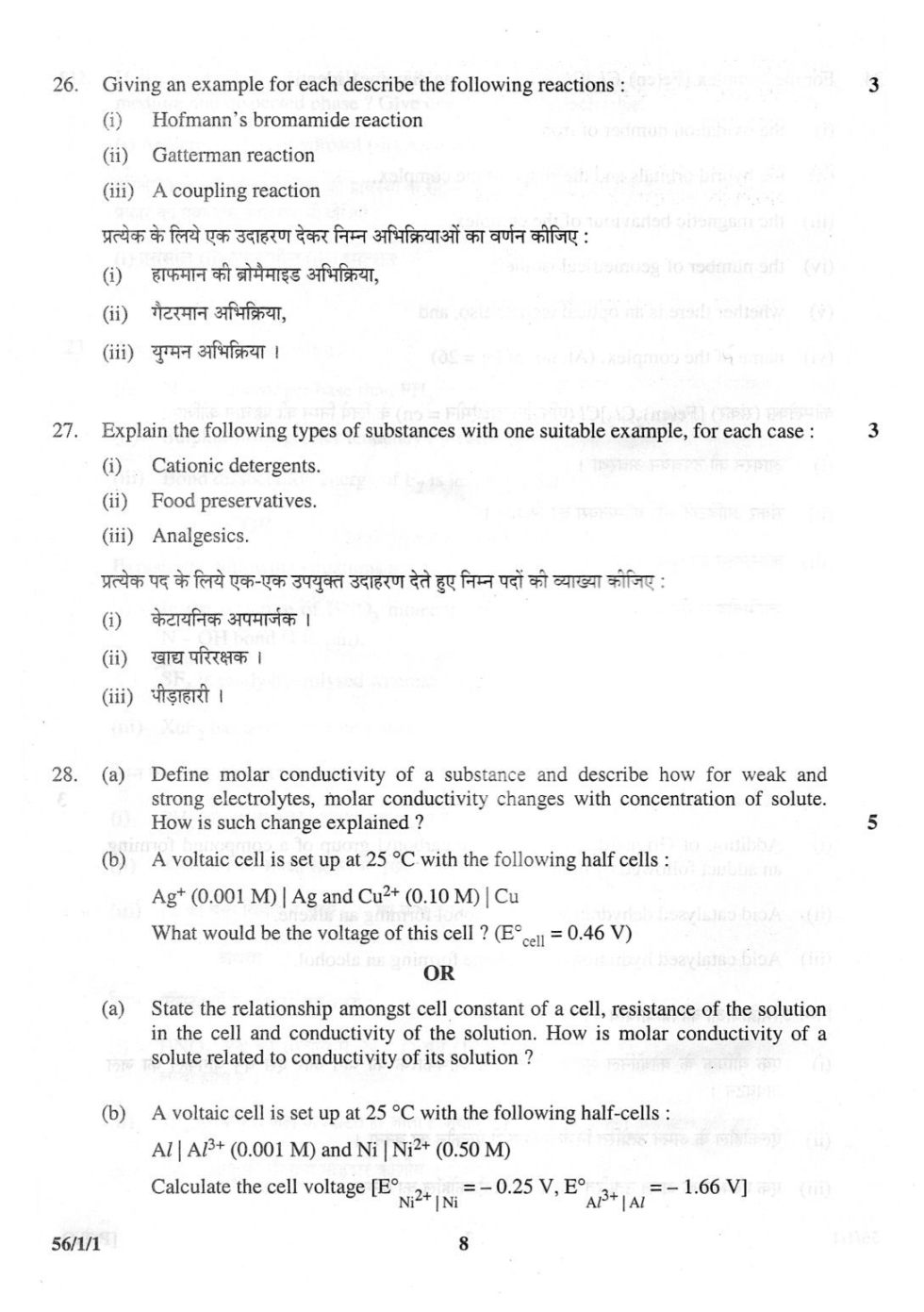 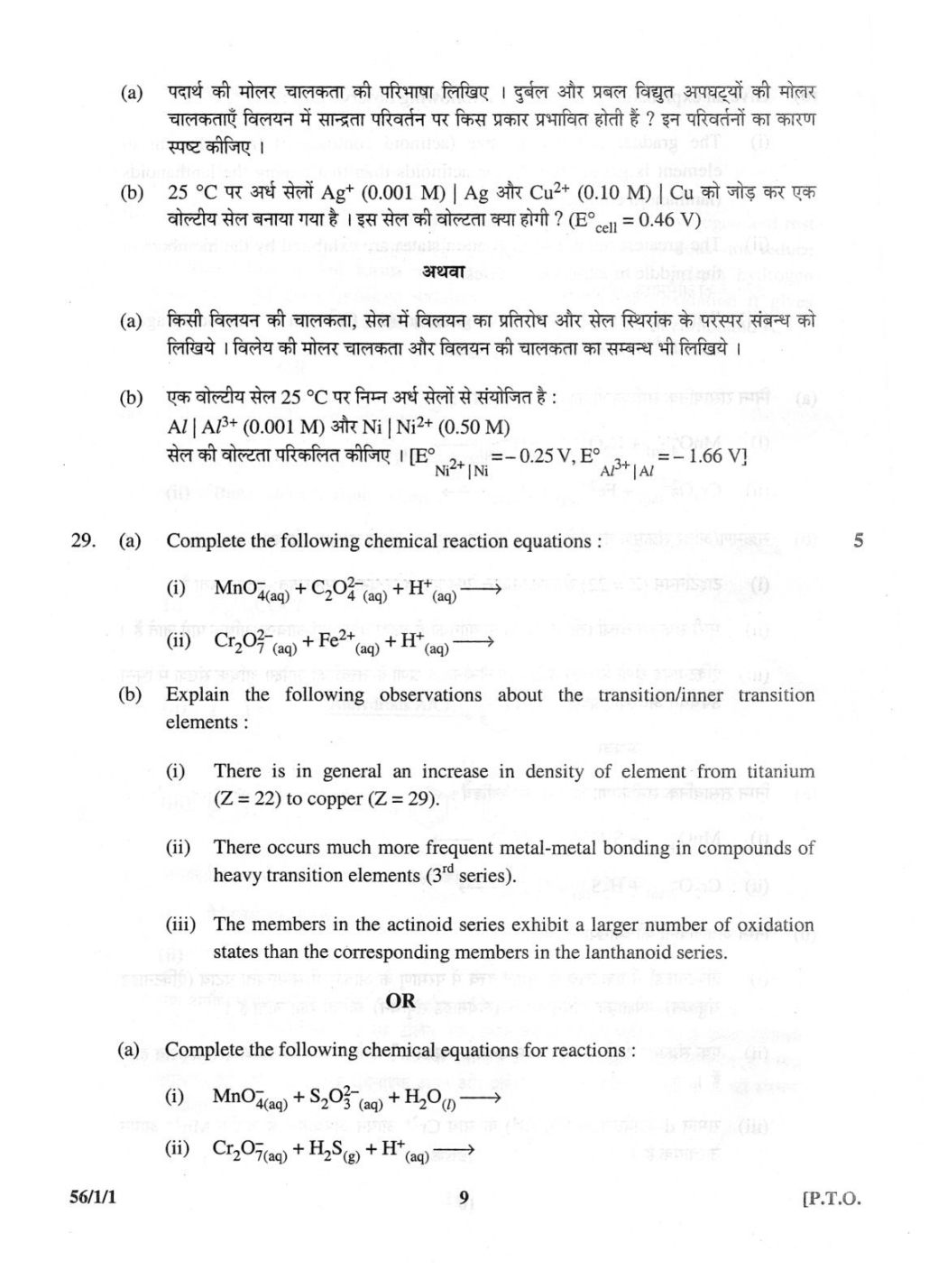  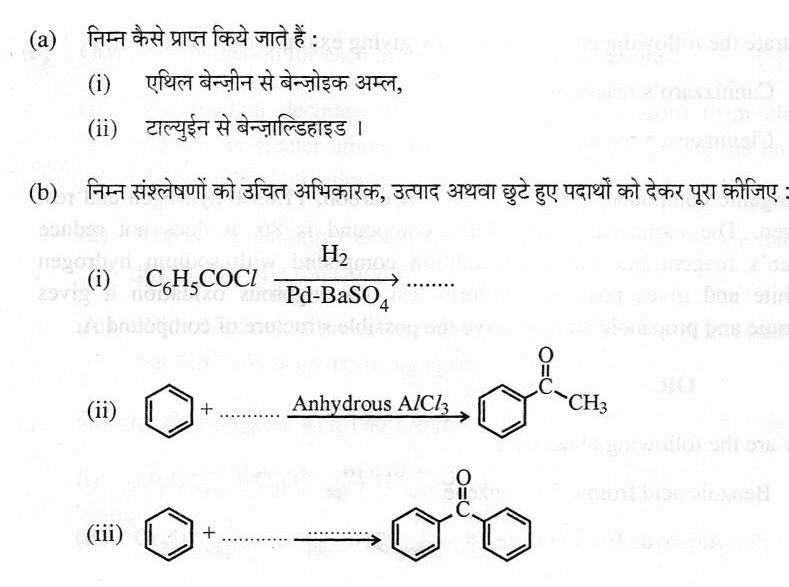 |
| 16th July 2014 04:17 PM | |
| Unregistered | CBSE 12th class Chemistry Previous year solved Question Paper Will you please provide me the CBSE 12th class Chemistry Previous year solved Question Paper??? |